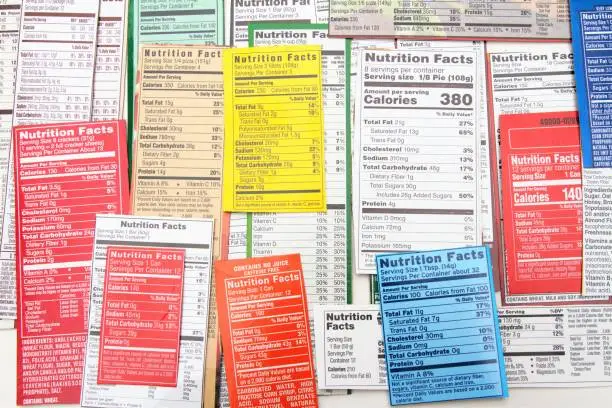With the vast array of food options available, making healthy choices can be overwhelming. Understanding the calorie and nutritional content of food is essential to guide daily decisions and maintain a balanced diet. In this article, we’ll delve into the world of nutrition labels, exploring the key components to focus on and providing practical tips for making informed food choices.

Understanding Nutrition Labels
Nutrition labels provide valuable information about the calorie and nutritional content of a particular food product. Here are the key components to focus on:
1. Serving Size: Pay attention to the serving size, as this will help you understand the nutritional content of the food.
2. Calories: Check the total number of calories per serving. Aim for foods with lower calorie counts.
3. Macronutrients: Focus on the amounts of carbohydrates, protein, and fat. Aim for a balanced mix of these macronutrients.
4. Micronutrients: Check the amounts of essential vitamins and minerals, such as vitamin D, calcium, and iron.
5. Added Sugars: Be mindful of added sugars, which can greatly impact calorie intake and overall health.
6. Sodium: Check the sodium content, aiming for foods with lower sodium levels.
Practical Tips for Making Informed Food Choices
1. Focus on Whole Foods: Prioritize whole, unprocessed foods like fruits, vegetables, whole grains, lean proteins, and healthy fats.
2. Read Labels Carefully: Take the time to read nutrition labels, paying attention to serving sizes, calorie counts, and nutrient content.
3. Aim for Balance: Strive for a balanced diet that includes a variety of foods from all food groups.
4. Be Mindful of Portion Sizes: Pay attention to serving sizes and control portion sizes to maintain a healthy calorie intake.
5. Limit Processed and Packaged Foods: Try to limit your intake of processed and packaged foods, which tend to be high in added sugars, sodium, and unhealthy fats.
Recommended Daily Intake
Here are some general guidelines for daily nutrient intake:
1. Calories: 1,600-2,400 calories per day for adult women and 2,000-3,000 calories per day for adult men.
2. Carbohydrates: 45-65% of total daily calories.
3. Protein: 10-35% of total daily calories.
4. Fat: 20-35% of total daily calories.
5. Fiber: 25-30 grams per day.
6. Sugar: 0 added sugar is the goal.
7. Sodium: Less than 2,300 milligrams per day.
By understanding the calorie and nutritional content of food and following these practical tips, you’ll be well on your way to making informed food choices and maintaining a balanced diet. Remember, a healthy diet is just one aspect of overall wellness – regular physical activity, stress management, and adequate sleep are also essential for optimal health.
